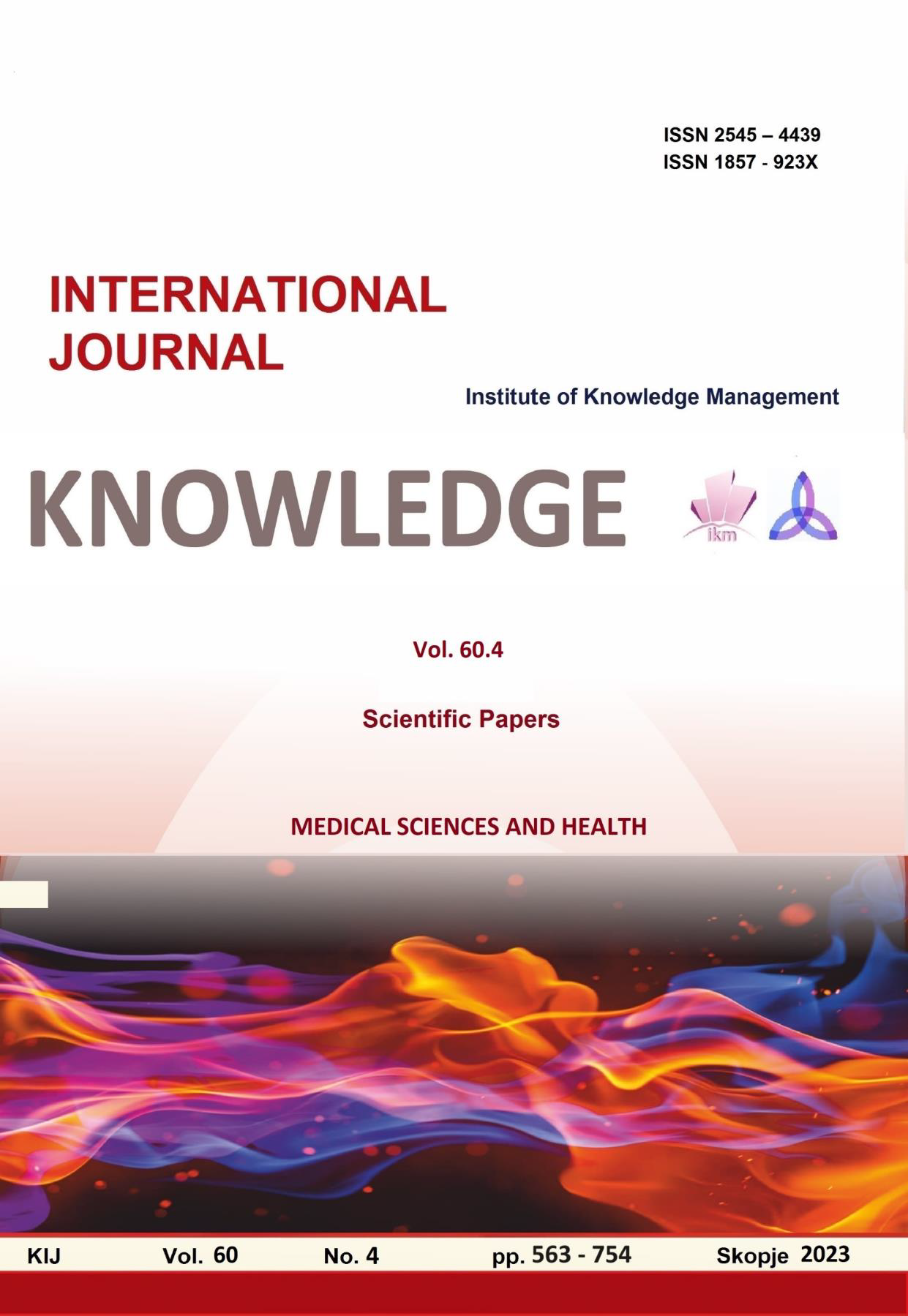КИНЕЗИТЕРЕПЕВТСКИ ЕФЕКТ ВРЗ ФУНКЦИОНАЛНОСТА КАЈ БОЛНИ СО ИСХЕМИЧНА ЦЕРЕБРОВАСКУЛАРНА БОЛЕСТ
KINESITHERAPEUTIC EFFECT ON THE FUNCTIONALITY IN PATIENTS WITH ISCHEMIC CEREBROVASCULAR DISEASE
Author(s): Danche Vasileva, Verica StoilovaSubject(s): Social Sciences, Sociology, Health and medicine and law
Published by: Scientific Institute of Management and Knowledge
Keywords: kinesitherapy;functional disorders;motor recovery;functional independence;ischemic cerebrovascular disease
Summary/Abstract: Ischemic cerebrovascular disease is an acute disturbance of cerebral circulation as a result of insufficient flow of blood, oxygen and glucose in the brain, with subsequent disturbance of metabolic processes in the affected area. Disability among survivors is about 50%. Stereotypical synergistic movements are observed in post-stroke conditions, which represent a limitation or inability to adapt movements to different tasks or to changed conditions. The more selective the movement, the more difficult the control over it. The adequate therapeutic approach is determined by the severity of the damage and the duration of the disease. The objectives of the study are to determine the effect of therapeutic exercises on functionality in patients with ischemic cerebrovascular disease. Material and Methods: The study was conducted with 12 patients with ischemic cerebrovascular disease in the chronic period (ICDChP) (7 men and 5 women, mean age 61.3 ± 7.6 years old, weight 75.6±9.2 kg, height 167.2±6.3 cm and duration of illness - 1 year). The Brunnstrom test and the functional independence test - FIM are used to assess motor recovery and the level of functional independence. The stage of functional recovery and functional independence were assessed at the beginning of the study, at 10th day, 1 month and 2 months after the initiation of kinesitherapy. All patients were treated with therapeutic exercises for a period of 10 days, which the patients later continued as an adapted home exercise program for a period of 2 months. Results: After completing the therapeutic exercises, the highest tendency to improve motor recovery and functional independence is at 1 month, with a significance level of p<0.001 Conclusion: Therapeutic exercises significantly improved motor skills and functional independence in patients with functional disorders due to ICDChP.
Journal: Knowledge - International Journal
- Issue Year: 60/2023
- Issue No: 4
- Page Range: 655-661
- Page Count: 7
- Language: English

